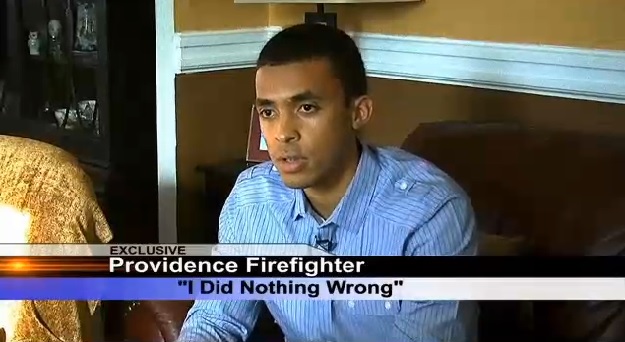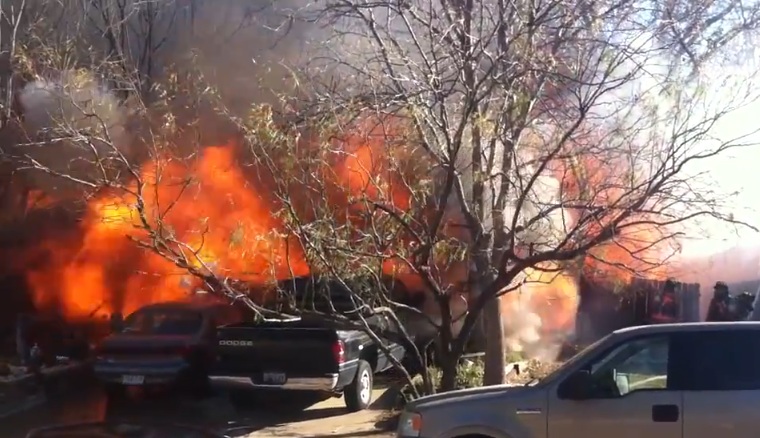UPDATE: Attention members of Congress & reporters: Metro does not talk on DC fire radios & DCFD doesn’t talk on Metro’s radios
UPDATE
Today (Thursday), Metro’s general manager and a DC Fire & EMS Department spokesman go public with their differing views on the impact of encryption. Thankfully the latest articles are much more clear about what all of this means than the ones posted after the briefing by members of Congress yesterday.
Metro’s general manager is standing by option 2 that we presented. That’s the position that Metro needed the encryption code for the tunnel radio equipment that is maintained by Metro, but used for DC Fire & EMS Department radios, to work properly.
A DC Fire & EMS Department spokesman still is not buying that’s the case because he says there weren’t problems elsewhere in the system in the month prior to the L’Enfant Plaza incident.
Here’s an excerpt from an article by Jessica Gresko of the AP that’s on the WTOP.com website:
The Metro transit agency’s interim General Manager Jack Requa said Thursday after an agency safety board meeting that the District of Columbia’s fire department had made changes to its radio system without alerting his agency.
“They made adjustments by encrypting their radios which made their radios less effective or almost non-working on our system,” Requa said, adding that after Metro got access to the site where firefighters made the changes, they were able to determine what had been done and respond accordingly.
A spokesman for the city’s fire department, Timothy Wilson, said Thursday that fire officials encrypted their radios in December and that Metro was notified when the problem became apparent. He said the department didn’t have any issues with encrypted radios working in Metro tunnels other than the ones at L’Enfant Plaza.
A Washington Post article by Paul Duggan and Mary Pat Flaherty goes into detail on what Requa said occurred after the January 8 email from DC Fire & EMS Department to Metro reporting that radios used by firefighters were not working in the L’Enfant Plaza station:
Requa told members of Metro’s board of directors Thursday that communications specialists at the transit agency spent all of the weekend of Jan. 10 and 11 trying to determine the cause of the problem.
But by Monday morning — just hours before scores of passengers were trapped on a smoke-filled train near the station — Metro workers trying to sort out the radio trouble “had more questions than answers.” They then scheduled a meeting for Jan. 14, with D.C. fire officials to attempt to pinpoint the cause of the problem.
Requa said it was eventually determined that firefighters had changed the encryption codes on their radios without notifying Metro. The agency needed to know so that it could alter the signal-relay equipment in the subway system so that the equipment would recognize and transmit the firefighters’ radio signals.
EARLIER
This is a very important message for my friends in the news media and those on Capitol Hill who represent us in Congress: Metro does not talk to the DC Fire & EMS Department on DC’s radio system.
Also, DC firefighters don’t talk to Metro on Metro’s radio system. It just doesn’t happen. It would be chaos if they were all talking on the same radio channels during an incident.
A briefing about the recent Metro incident given by NTSB to members of Congress yesterday (Wednesday) ended up providing less clarity on the radio problems and another key issue than there was before they all got together.
THE RADIO PROBLEM AT L’ENFANT PLAZA
The problem experienced during the deadly smoke/fire situation at L’Enfant plaza was that DC firefighters could not, for the most part, talk with each other, the fire department command officers in charge of the fire or the fire and EMS dispatchers at the DC Office of Unified Communications (OUC or the 911 center) from inside the station and tunnels. There was something wrong with the radio re-transmission system at L’Enfant Plaza, maintained by Metro, that hindered fire department communication. (Again, no talking between Metro and DC Fire & EMS on this radio system occurs. Get that thought out of your heads and please don’t mention it again.)
IS ENCRYPTION THE REASON FOR THE RADIO PROBLEMS AT L’ENFANT PLAZA?
Members of Congress from the National Capital area and reporters are indicating the encryption of the DC fire radios a month before the L’Enfant Plaza incident caused this failure. Many in Metro think that’s the case and just as many in the DC government say otherwise.
Encryption masks the digital signal so only those with other similarly encrypted radios can communicate with each other. Remember, this is not a problem for communication between Metro and the DC Fire & EMS Department, because they don’t and shouldn’t operate on the same radio systems.
Many knowledgeable people I’ve talked with say that encryption is NOT the reason the radios carried by firefighters failed inside of L’Enfant Plaza. They say the previously mentioned radio re-transmission system maintained by Metro should have no problem handling the encrypted signal. They also point out if encryption was the problem, DC Fire & EMS Department radios would not have worked inside other Metro stations and tunnels at any time after the mid-December change to encryption, not just at L’Enfant Plaza on that day.
That said, others with knowledge of the re-transmission system are making the case that encryption MUST be the culprit. They says this is because Metro’s own radios, along with cell phones, worked through that same system at L’Enfant Plaza on the day of the incident.
I will be the first to admit I am not a radio expert and can’t tell you who is correct. But, if I were reporting this story, I’d be very cautious before making the leap, at this point, that encryption is the problem. We all need more information. NTSB made it clear at its briefing yesterday that the radio problems, including encryption are something that is part of its investigation.
THERE IS A DC FIRE & EMS DEPARTMENT RADIO INSIDE METRO’S OCC
Now, I am going to confuse you a little, but pay attention and you’ll be fine. There is a DC Fire & EMS Department base station radio inside Metro’s Operations Control Center (OCC) on Pennsy Drive in Landover, Maryland. The first thing you should know about that radio is something that shouldn’t surprise you if you were paying attention up until now. Here it is: Metro employees DO NOT talk on that radio.
So, why is that radio inside OCC if Metro workers don’t use it? That radio is strictly for the use of the DC Fire & EMS Department battalion chief dispatched from the District of Columbia to Landover each time there is a report of a fire or a rescue operation inside DC’s portion of the Metro system. That chief officer acts as the liaison between OCC and the fire department’s command officer(s) on the scene of the incident in DC.
This procedure began years ago when OCC was at Metro’s headquarters in DC (in those days a chief officer just walked over from the firehouse across the street). It was set up because the DC Fire & EMS Department had received unreliable or wrong information from OCC during a number of incidents.
My understanding is, on the drive to Landover, the battalion chief talks by cell phone to OCC and uses the radio in the vehicle to relay messages back and forth to the command officers at the scene. Once inside OCC, the battalion chief and the chief’s aide use the DC Fire and EMS Department base station radio to relay messages.
I am told it’s POSSIBLE that ONE radio inside Metro’s OCC was not encrypted when DC switched to an encrypted radio system in December. Before you jump up and down because you think this is the smoking gun for this whole encrypted radio screw-up you need to know the following four things:
- This possibly un-encrypted radio had NO impact on the firefighters being unable to communicate properly on their radios at L’Enfant Plaza. That’s a completely separate problem.
- IF this radio was not encrypted, the battalion chief could still use a phone to communicate with the fire department command officers at the scene or send the aide outside the building to use a portable radio.
- IF this happened (and, of course, it shouldn’t) it really is a relatively minor part of the L’Enfant Plaza incident and likely would not have a major impact on the operation.
- IF this happened, it would have no impact on Metro talking on the DC radio system. That’s because, in case you haven’t heard, Metro and DC firefighters don’t communicate with each other by radio.
SAY NO TO ENCRYPTION
Despite everything I’ve told you, I still think encryption for the DC Fire & EMS Department is a very stupid idea (and so do some of the fire chiefs in our region). It was put in place by short-sighted management in the previous administration.
Even if encryption didn’t have an impact on the response to this incident, it does have the potential for causing problems at large-scale emergencies where many different fire departments from the region are operating at the same scene. Note again, these are fire departments. Generally speaking, this radio system is for fire department to fire department communication (though it does have capabilities to bring in others).
AND WHILE I HAVE YOUR ATTENTION
On a related topic, reading some of the articles about the press conference with the members of Congress and the separate briefing for reporters by NTSB yesterday (Wednesday), some of you are confusing the issue about fans and ventilation. You are failing to make a clear distinction between the ventilation fans that can either remove air/smoke from a tunnel or pump in fresh air and the ventilation system that’s on the train. These are two different animals (kind of like the separate radio systems operated by DC Fire & EMS and Metro). Some of what has been written, or said by members of Congress, just like with the radios, isn’t making sense.






